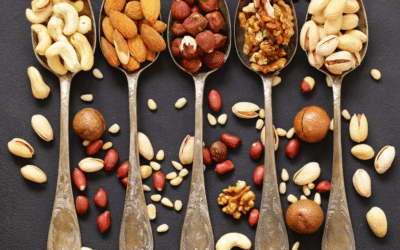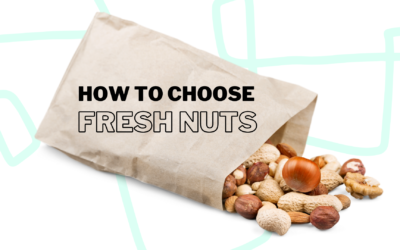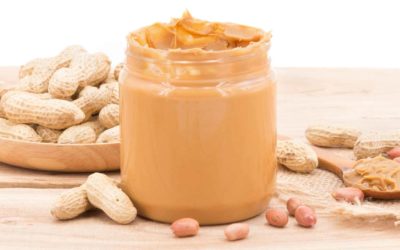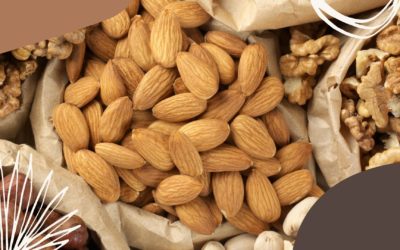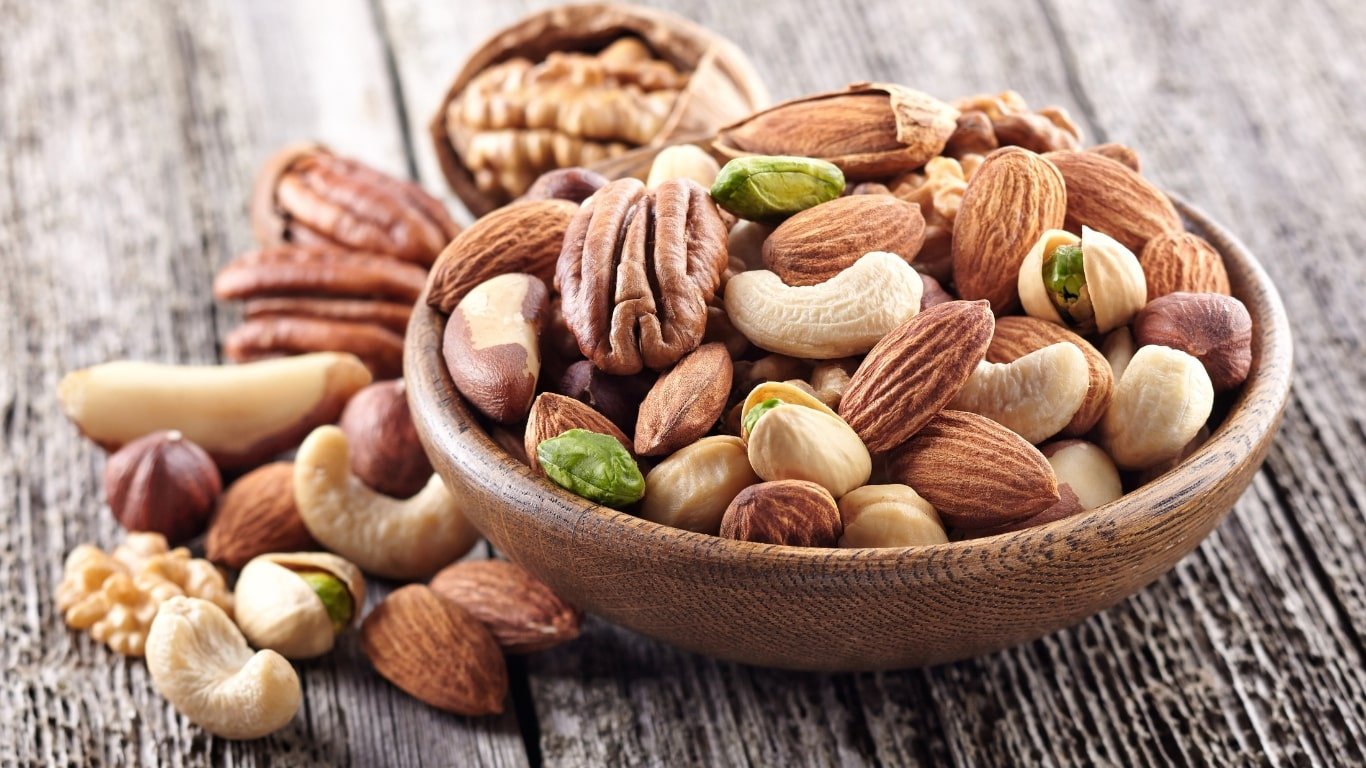
High cholesterol is one of the most common health concerns, linked to an increased risk of cardiovascular diseases, including heart attacks and strokes. While medications like statins are commonly prescribed, many people prefer natural methods to lower cholesterol. Diet plays a crucial role in managing cholesterol levels, and one food group that has garnered attention for its cholesterol-lowering properties is nuts.
Nuts are rich in healthy fats, fiber, plant sterols, and various heart-friendly nutrients. Not all nuts are created equal, though—some are more effective at reducing cholesterol levels than others. In this article, we’ll delve into the best nuts for lowering cholesterol, the science behind their health benefits, and how to incorporate them into your diet for maximum impact.
What is Good and Bad Cholesterol?
Before exploring how nuts can help manage cholesterol, it’s essential to understand what cholesterol is. Cholesterol is a fatty substance in your blood, which comes in two main types:
- Low-Density Lipoprotein (LDL): Often referred to as “bad” cholesterol, LDL can accumulate in your arteries, leading to plaque build-up and increasing the risk of heart disease.
- High-Density Lipoprotein (HDL): Known as “good” cholesterol, HDL helps remove excess cholesterol from the bloodstream, transporting it to the liver for removal from the body.
A diet high in saturated and trans fats can raise LDL cholesterol levels, while consuming foods rich in unsaturated fats can help lower LDL and improve HDL levels. This is where nuts, which are packed with unsaturated fats, come into play.
The Best Nuts for Lowering Cholesterol
1. Almonds
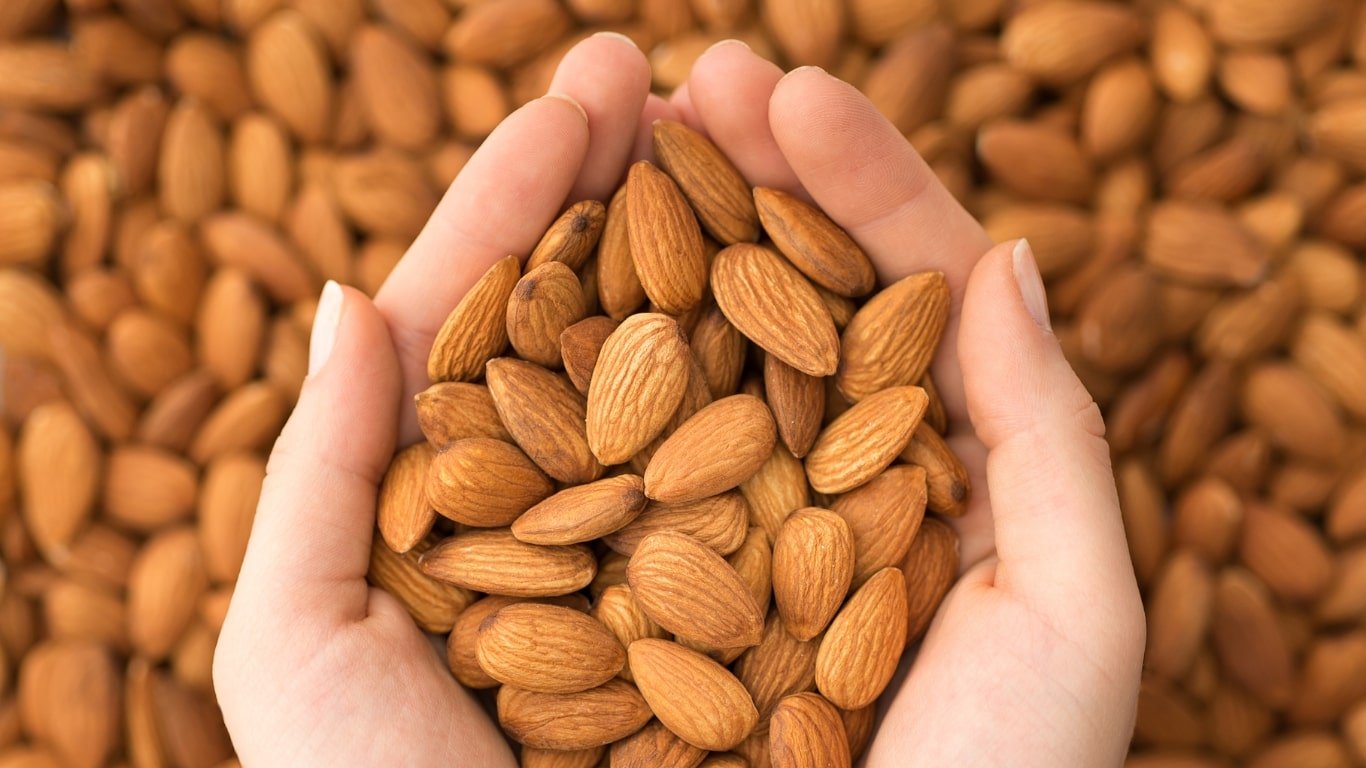
Almonds are among the best nuts for reducing cholesterol levels. Numerous studies have shown that consuming almonds regularly can lower LDL cholesterol while maintaining or even increasing HDL levels. This cholesterol-lowering effect is primarily due to their high content of monounsaturated fats, which are beneficial for heart health.
In addition to heart-healthy fats, almonds are rich in fiber, which helps reduce cholesterol by promoting the removal of cholesterol-rich bile from the body. They also contain plant sterols, which are compounds that block the absorption of cholesterol in the intestines.
How to Include Almonds in Your Diet
Almonds make a great snack or can be added to smoothies, salads, or oatmeal. Opt for unsalted almonds to avoid excess sodium intake.
2. Walnuts
Walnuts are unique because they are one of the richest plant-based sources of omega-3 fatty acids, which are particularly effective in reducing LDL cholesterol. Omega-3 fatty acids also lower inflammation in the body, which can help protect the arteries from damage and prevent plaque build-up. Regular consumption of walnuts has been associated with lower total cholesterol levels and a reduced risk of heart disease.
Walnuts are also high in polyunsaturated fats, particularly alpha-linolenic acid (ALA), which is a type of omega-3 fatty acid that the body converts to eicosapentaenoic acid (EPA) and docosahexaenoic acid (DHA), both of which are essential for heart health.
How to Include Walnuts in Your Diet
Walnuts can be eaten as a snack, added to cereals, or used in baking. Try sprinkling chopped walnuts on top of salads or yogurt for a heart-healthy boost.
3. Pistachios
Pistachios are another excellent option for lowering cholesterol, thanks to their high content of monounsaturated and polyunsaturated fats. Studies have shown that eating pistachios can significantly reduce LDL cholesterol and total cholesterol levels while increasing HDL cholesterol.
Pistachios also contain a wealth of antioxidants, including lutein, beta-carotene, and gamma-tocopherol, which can protect against oxidative stress and inflammation. These factors are important for heart health because they help prevent the oxidation of LDL cholesterol, which is a key contributor to the formation of arterial plaque.
How to Include Pistachios in Your Diet
Pistachios make a great on-the-go snack and can also be added to dishes like salads, rice, or yogurt. Choose unsalted varieties to keep sodium intake in check.
4. Cashews
Cashews are rich in heart-healthy fats, including monounsaturated fats, which can help lower LDL cholesterol and increase HDL levels. Although cashews have a slightly higher carbohydrate content than other nuts, they are still beneficial for heart health when consumed in moderation.
In addition to their cholesterol-lowering effects, cashews are a good source of magnesium, a mineral that plays a vital role in regulating blood pressure and supporting overall cardiovascular health.
How to Include Cashews in Your Diet
Cashews can be enjoyed on their own or incorporated into various dishes like stir-fries, salads, and curries. They also make a creamy base for sauces and dips when blended.
5. Hazelnuts
Hazelnuts are another nut with a positive impact on cholesterol levels, largely due to their high content of monounsaturated fats. Like almonds, hazelnuts can help reduce LDL cholesterol without lowering HDL cholesterol.
Hazelnuts are also a good source of dietary fiber, which helps bind cholesterol in the digestive system and promotes its removal from the body. In addition to their cholesterol-lowering benefits, hazelnuts are rich in vitamin E, a powerful antioxidant that protects against free radical damage.
How to Include Hazelnuts in Your Diet
Hazelnuts can be added to baked goods, ground into spreads, or tossed into salads. Like other nuts, opt for unsalted and minimally processed varieties for the most health benefits.
6. Pecans
Pecans, known for their buttery flavor, are loaded with heart-healthy fats. While they are higher in calories than some other nuts, they are an excellent source of monounsaturated fats, which help lower LDL cholesterol.
Pecans are also rich in antioxidants, which play a key role in preventing the oxidation of cholesterol in the arteries. Regular consumption of pecans has been linked to improved lipid profiles and reduced inflammation, both of which are important for heart health.
How to Include Pecans in Your Diet
Pecans can be used in a variety of sweet and savory dishes. Add them to salads, yogurt, or oatmeal for a nutritious topping, or enjoy them as a snack.
7. Macadamia Nuts
Macadamia nuts are one of the richest sources of monounsaturated fats, making them excellent for reducing cholesterol levels. Although they are higher in calories and fat than most other nuts, their fat profile is predominantly heart-healthy.
In addition to their cholesterol-lowering benefits, macadamia nuts are a good source of fiber, which aids in digestion and promotes healthy cholesterol levels.
How to Include Macadamia Nuts in Your Diet
Enjoy macadamia nuts as a snack, add them to baked goods, or use them to make nut butter.
How Much Nuts Should You Eat to Lower Cholesterol?
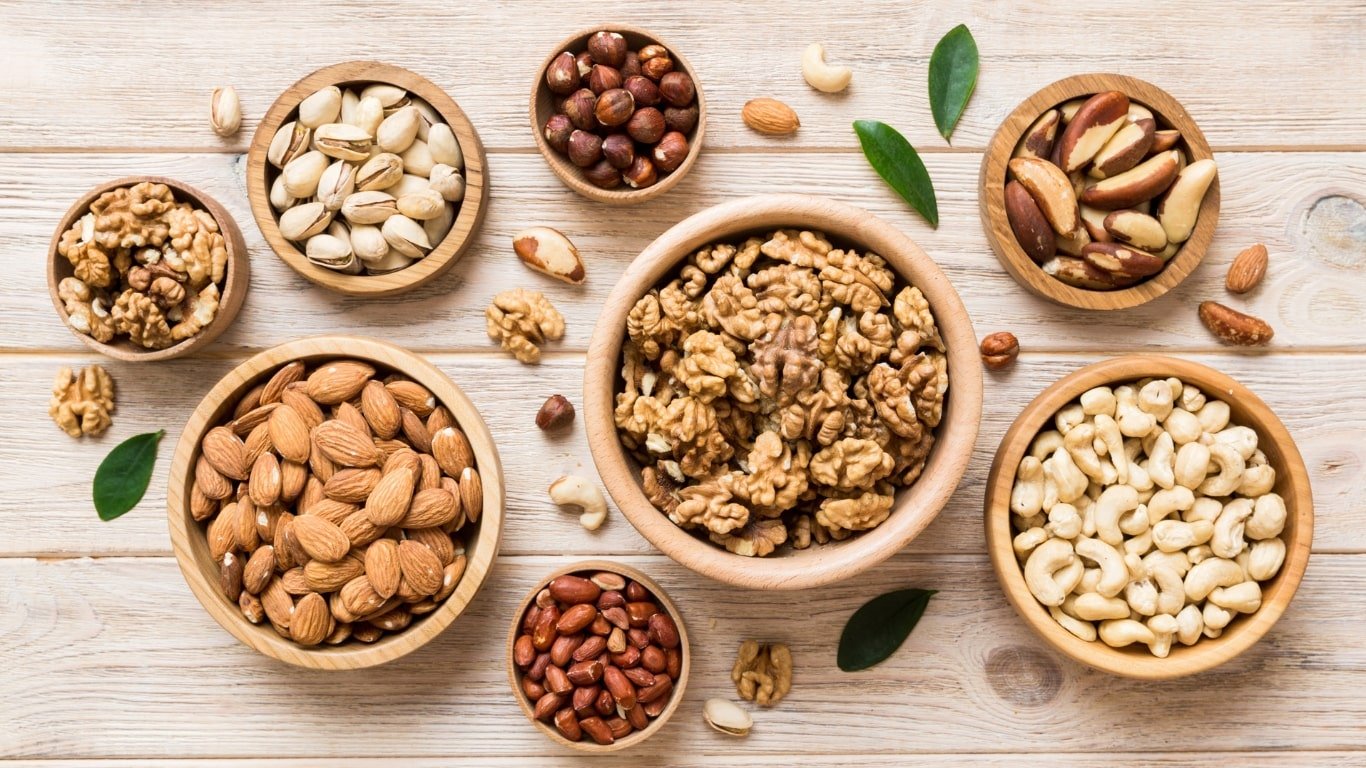
While nuts are incredibly healthy, they are also calorie-dense, so portion control is important. A daily serving of around 1 ounce (28 grams) of nuts is generally recommended for heart health. This amounts to about a small handful of nuts or around 23 almonds, 14 walnut halves, 49 pistachios, or 18 cashews.
It’s also essential to choose unsalted, raw, or dry-roasted nuts without added sugars or unhealthy oils for the best results. Keep in mind that consuming nuts in moderation is key to reaping their health benefits without overloading on calories.
What nuts are not good for high cholesterol?
While most nuts are beneficial for lowering cholesterol, those that are heavily processed, salted, or coated with sugars and unhealthy fats should be avoided if you’re trying to manage cholesterol levels. For example, nuts roasted in hydrogenated oils or trans fats can counteract the heart-healthy benefits of raw or dry-roasted nuts, potentially increasing LDL (“bad”) cholesterol. Flavored nuts, such as honey-roasted or chocolate-covered varieties, can also be loaded with sugars and unhealthy fats, which contribute to weight gain and higher cholesterol. Opt for raw, unsalted, or dry-roasted nuts to ensure you’re getting their full cholesterol-lowering benefits.
What are the top 3 healthiest nuts?
The top three healthiest nuts for overall wellness are walnuts, almonds, and pistachios. Walnuts stand out for their rich omega-3 fatty acid content, which is crucial for heart health and lowering LDL cholesterol. Almonds are packed with monounsaturated fats and fiber, both of which help reduce cholesterol levels and improve cardiovascular health. Pistachios offer a blend of both monounsaturated and polyunsaturated fats, and studies show they can significantly lower LDL cholesterol while boosting HDL (“good”) cholesterol. Together, these three nuts offer a powerful combination of heart-healthy fats, fiber, and essential nutrients.
Are almonds or cashews better for cholesterol?
When it comes to cholesterol management, almonds are generally considered better than cashews. Almonds are high in monounsaturated fats and fiber, both of which have been shown to significantly lower LDL cholesterol while improving HDL levels. Cashews are also rich in heart-healthy fats, but they contain slightly more carbohydrates and fewer beneficial fats compared to almonds. Although both are good options for heart health, almonds have been more extensively studied for their cholesterol-lowering effects and may provide greater benefits in this regard.
Six Superfoods that Lowers Cholesterol
The six superfoods that are particularly effective at lowering cholesterol include nuts, oats, fatty fish, avocados, olive oil, and beans. Nuts like almonds, walnuts, and pistachios are rich in healthy fats and fiber, which help lower LDL cholesterol. Oats contain beta-glucan, a type of soluble fiber that reduces cholesterol absorption. Fatty fish, such as salmon and mackerel, are high in omega-3 fatty acids, which lower triglycerides and LDL cholesterol. Avocados and olive oil are packed with monounsaturated fats that help improve cholesterol levels, while beans provide soluble fiber to further aid in cholesterol reduction.
Buy Nuts Singapore
If you’re looking to incorporate heart-healthy nuts into your diet, our shop in Singapore offers a wide variety of premium nuts, perfect for helping you lower cholesterol naturally. Whether you’re after almonds, walnuts, pistachios, or cashews, our selection is carefully curated to ensure freshness and quality. With our nuts rich in healthy fats and essential nutrients, you can take a step toward better heart health today. Shop with us for a convenient and reliable source of cholesterol-lowering nuts, delivered right to your door in Singapore!
Conclusion
Nuts are one of the most heart-healthy snacks you can incorporate into your diet, particularly when it comes to lowering cholesterol levels. Almonds, walnuts, pistachios, cashews, hazelnuts, pecans, and macadamia nuts are all excellent choices for improving cholesterol profiles due to their high content of healthy fats, fiber, plant sterols, and antioxidants. By including a variety of these nuts in your daily routine, you can naturally lower your LDL cholesterol, raise your HDL cholesterol, and improve your overall cardiovascular health.
Remember, while nuts are a valuable part of a heart-healthy diet, they should be combined with other lifestyle changes such as regular exercise, avoiding trans fats, and maintaining a balanced, nutritious diet for optimal results.


